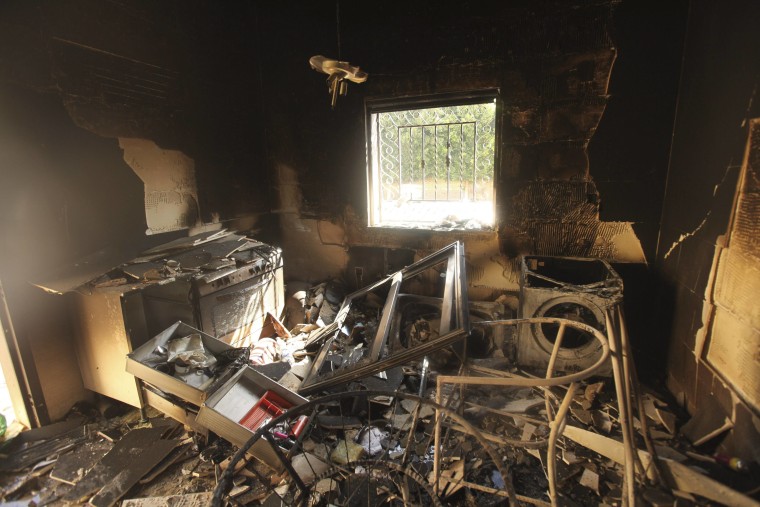Two weeks after airing a lengthy report on last year's attack in Benghazi, CBS's "60 Minutes" acknowledged late last week that its segment -- celebrated by a far-right conspiracy theorists -- was wrong. Last night, Lara Logan appeared on the program and offered a 90-second apology.
It almost certainly won't end the controversy. As the New York Times noted, the apology was not only brief, it "revealed nothing new" about why CBS managed to get the story so very wrong. Complicating matters, "60 Minutes" launched an expansive recovery effort after getting a 2004 story about George W. Bush's military record wrong, but the show apparently has no intention of responding in kind now -- a CBS spokesman "indicated that the program was going to let its televised apology be its last word on the issue."
There are a wide variety of pressing questions about this discredited report, but at least for now, CBS doesn't intend to answer them.
But let's not forget that this isn't just a media story. After the "60 Minutes" report aired, leading Republican policymakers seized on the segment as proof of the need for further congressional action. Sen. Lindsey Graham (R-S.C.) said two weeks ago, "How can I explain the people in my home state, and for that, for the country, that the story [Obama administration officials] told us about Benghazi holds water after the '60 Minutes' story?"
Graham announced soon after that he would block the entirety of the Senate confirmation process because of his Benghazi questions. The question then becomes, now that Graham's new "evidence" has been discredited, will he be more responsible? Apparently not.
Senator Lindsey Graham on Sunday stood by his threat to block all nominations by the Obama administration until Congress was granted access to all the survivors of the attack on the United States Mission in Benghazi, Libya, even as the news report on which Republicans based their latest demands was being retracted. Mr. Graham, Republican of South Carolina, said on the CNN program "State of the Union" that he would not back away from his threat because he had been asking to talk to the witnesses of the attack on Sept. 11, 2012, for a long time without success.
By any sensible standard, this simply doesn't make sense. Graham seized on the "60 Minutes" report to bolster his conspiracy theories, but the segment has been retracted and discredited. The senator has said he needs to block all pending nominees because he wants to talk to survivors of the Benghazi attack, but survivors have already agreed to deliver congressional testimony.
In other words, what we're left with is a senator throwing a tantrum for no particular reason. He's single-handedly bringing all Senate confirmation votes to a halt to get what he's already been given, and because of a CBS report that CBS no longer believes.
The people behind the faulty reporting aired by "60 Minutes" have quite a bit of explaining to do, but they're not the only ones who owe the public an explanation for having shown poor judgment. Perhaps Lindsey Graham can explain how much more proof he'll need before ending his crusade pushing Benghazi conspiracy theories?
